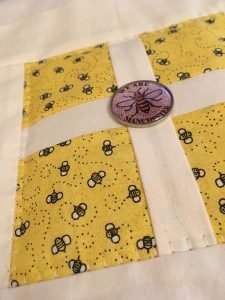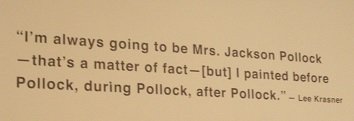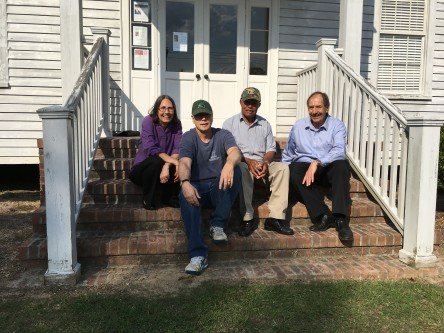As previously mentioned here and here, a few months ago I pulled out my stash of 2½ x ? fabric strips leftover from decades of projects and delved into a diversionary tactic* of piecing together a scrap version of the Dora Quilt**.
As I began piecing the scrap-blocks, I realized I preferred the non-calico blocks which included one made out of a bee print fabric scrap. The scrappy Dora Quilt soon evolved into my Proud2Bee an honorary Manc wall hanging with its sole purpose as a means to display my precious Manchester Worker Bee Badge***. A humble gesture by this everyday American standing in solidarity with those affected by that horrific terrorist attack at the Manchester Arena – on children – May 22, 2017.
The top, ready for quilting, sat waiting for several weeks before I finally settled on the finishing details.
Using extra blocks as patches to experiment on, I explored a few of the decorative machine stitches on my Bernina and trying my hand at new-to-me methods of machine quilting using the walking foot attachment.
I really enjoyed finding designs from everyday sources and stitching with different types of threads.
Parallel to this experimentation, I found I had just enough of that scrap bee fabric to make into single Proud2Bee blocks to send to two compadres**** for use as a mini-wall hanging to display their own Manchester Bee Badges.
On my own Proud2Bee an honorary Manc wall hanging, I chose to use the machine blanket stitch for outlining areas of the pieced top and a wavy hand-guided stitch for the borders. Instead of a traditional rod pocket sleeve as sewn on the Proud2Bee mini-wall hangings, I tried out the corner method as shown in the photo to the left. I like it, but think it wouldn’t work as well with anything sized larger than 30 x 30.
As for the label…true completion comes with a label, IMHO (not that everything created by my own hands has been labeled). Signing and dating a quilt/wall-hanging piece are pretty basic and easy to slip in at the end of the project.
Personally, I like to add the name of the quilt/wall-hanging to the label also.
Thus piquing interest – starting conversations – priming the imagination.
Here is:
Proud2Bee an honorary Manc LBL 2017
(examples of other named projects here, here, here, here and here)
*I needed a breather from other projects
**from: “3 Times the Charm!” by Me & My Sister Designs
***sent to me by my Manc buddy…for basic info on the Manchester Worker Bee as symbolic of the city and as honoring those killed go here
****you two know who you are!












